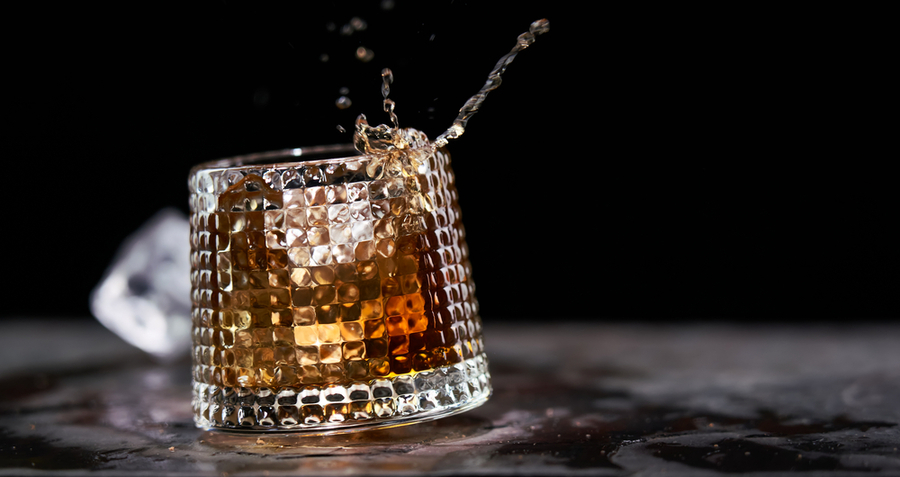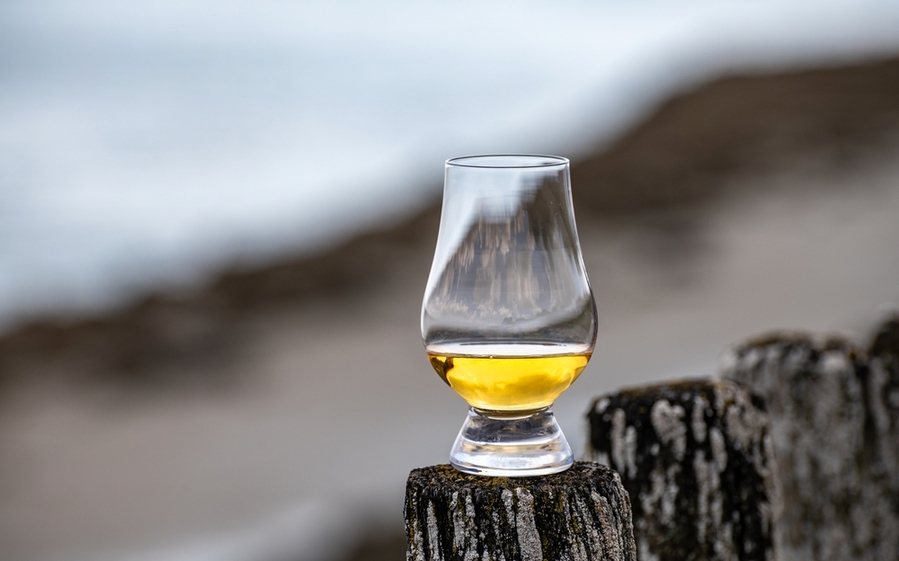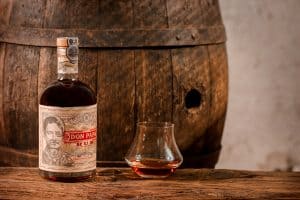
Scotland and Ireland could be neighbors, but they are separate countries. Ireland started distilling whiskey first, and the Scots followed.
What is the difference between Scotch and Irish whiskey?
Irish whiskey is distilled thrice, while Scottish whisky is distilled only twice. Scotch is produced chiefly from malted barley dried over peat fires. Irish whiskey is sometimes distilled from malted barley but must contain at least 50% barley, and the rest may be made up of different grains such as corn, rye, and wheat.
We’ll explore the differences between Irish and Scottish whiskey below, which includes the name, countries of origin, and the associated rules governing whiskey production, the distillation process, the grains, and the aging and maturation processes.
Whisky vs. Whiskey

Besides the ‘e’ in Irish whiskey, Scotch is spelled without the ‘e.’ Both spelling conventions are correct, but they shouldn’t be used interchangeably, as was the case in the United States during the 1800s.
The difference comes from the slight differences in the Gaelic dialects spoken in Scotland and Ireland. In Irish, the spelling is Uisce beatha. In Scottish Gaelic, it is uisge beatha—these are slight differences. Still, it gave rise to two spelling variations for the same word.
Whiskey-producing nations had to adopt a spelling to differentiate their products. The Scots (and most nations abroad, such as Japan, India, and Canada) stuck with whisky. At the same time, Ireland and the US preferred whiskey.
The Irish spelling became entrenched in the United States with the many Irish settlers that settled there before, during, and after the Great Famine that struck Ireland between the 1840s and 1850s.
Country of Origin
Scotland and Ireland have different regulations for their respective whiskey products—many of the points overlap.
The main difference is that they are produced in different countries and governed by each country’s specific legislation.
Scotland:
- Produced entirely in Scotland
- It may not contain any added substances other than plain water and plain caramel coloring.
- Fermented and processed at the same distillery
- Made primarily from malted barley (other grains are not uncommon) and water
- Aged in Scotland in an excise warehouse and aged at least three years in oak casks
Ireland:
- Produced entirely in Ireland (the Republic of Ireland and Northern Ireland)
- Aged for a minimum of three years in wooden casks with a maximum capacity of 700 liters (185 US gal; 154 imp gal)
- Usually, it must be distilled in pot stills
- Made from unmalted barley and other grains
- Distilled at an alcoholic strength of less than 94.8 ABV, it may only contain the aroma and taste of the materials used during distillation.
- Only plain water and caramel color may be added to the product
Distillation Process
In simple terms, Irish whiskey is distilled three times and Scotch only twice. This makes a big difference in the taste—Irish whiskey tends to be smoother.
The invention of the continuous still (also called a Coffey or column still) revolutionized whiskey production. Because they still can be used constantly, whiskey could be produced cheaper, use less fuel, and have a more substantial output than the pot still.
Scotland (and England’s gin distillers) embraced the new technology early on, allowing Scotland to become the largest whiskey producer in the world.
Irish whiskey is usually distilled three times in a copper pot still—a process introduced by James Jameson (ironically, a Scottish gentleman who settled in Ireland).
Triple distillation concentrates the distilled product, and only the middle or heart cuts are re-distilled in the second and third distillations. Some are also produced in a continuous still, but the majority of distillers use the pot still.
Grains such as corn are usually distilled in a column still. In contrast, malted and unmalted whiskeys are still distilled in the traditional pot.
Grains
The barley is malted by steeping it in water to stimulate germination.
Once the barley starts to germinate, the process is stopped by heating it on a malting floor heated by a peat fire underneath. The malted barley absorbs the smoke from the peat fires, giving Scotch its familiar smoky taste.
The malted grain is full of sugars, carbohydrates, and diastase (a group of enzymes that break starches down into maltose, a type of sugar).
Single malt whiskeys are made from a single grain malt at a single distillery.
Irish whiskey contains at least 50% malted barley, while the rest can be made of wheat, rye, corn, or unmalted barley.
Aging and Maturation
Scotch is aged in oak barrels for a minimum of three years. The distilled product is 140 proof and called ‘plain British spirit.’
Unlike bourbon, Scotch may be aged in the same barrels year after year. Finishing is an extension of the aging and maturation process—using casks containing other spirits or wine prior to the whisky.
Typically, Irish whiskey is matured in ex-bourbon barrels constructed from American oak sourced in the United States. The distilled liquor is blended with water to achieve a 65% ABV before being barreled (130 proof in the US).
The barrel will add its taste to the whiskey as it matures, resulting in a smooth and flavorful drink. The longer the whiskey is aged in the barrel, the stronger the taste and color develop.
Irish whiskey tends to taste sweeter than its Scottish counterpart.
Conclusion
Apart from being almost neighbors, Scotland and Ireland differ in their whiskey production. Scotch is typically distilled from malted barley, whereas the Irish counterpart is from unmalted barley and other grains. Their spelling also differs.
A significant difference between the two is the distillation process—Irish whiskey is triple distilled, resulting in a much smoother and sometimes sweeter product. Due to the peat fires used to dry malted barley, Scotch is distilled only twice and has a bold, smoky flavor.
Either way, Scotch and Irish whiskey deserve a place in your bar because they both carry the history of their countries’ people and innovators.









